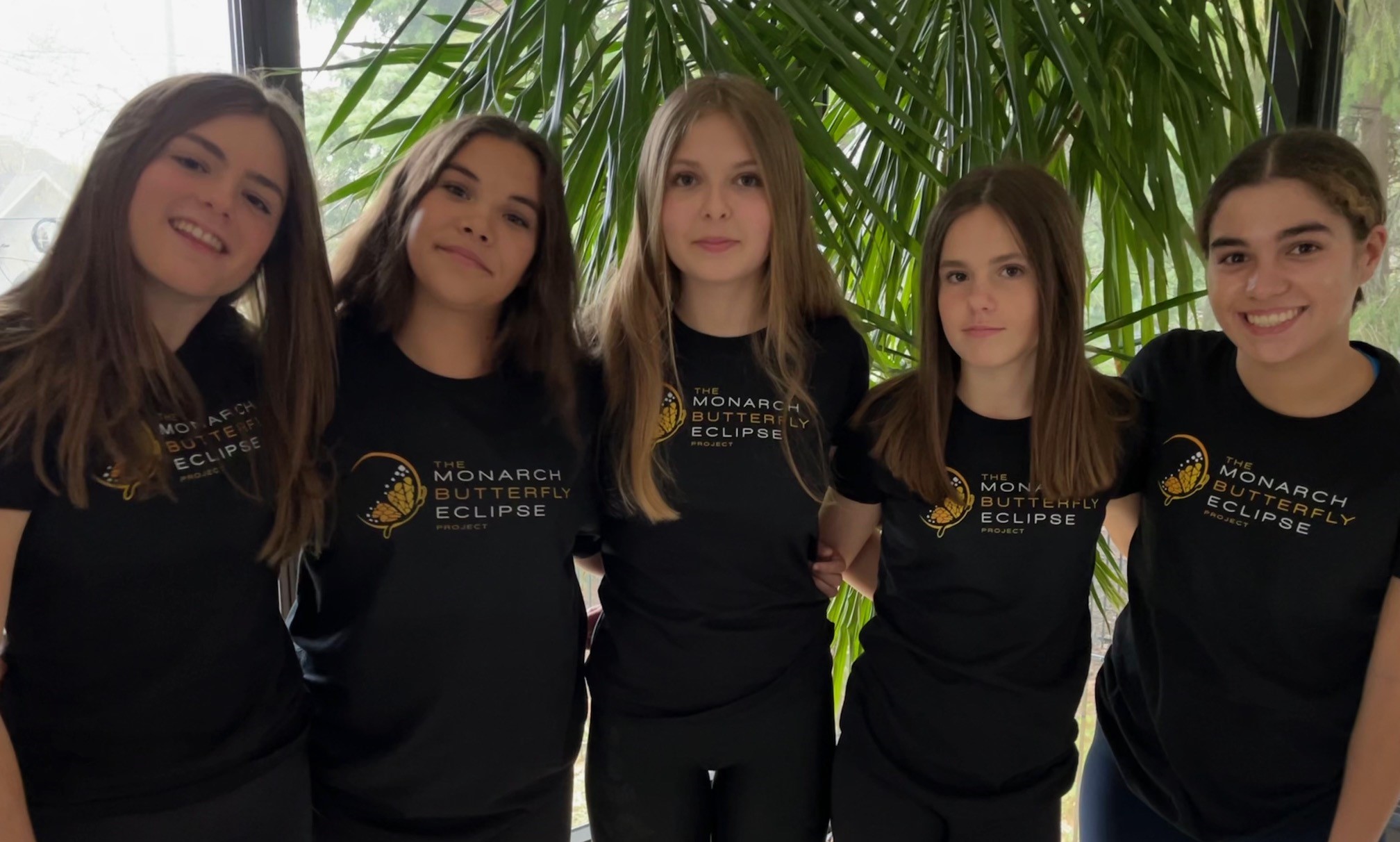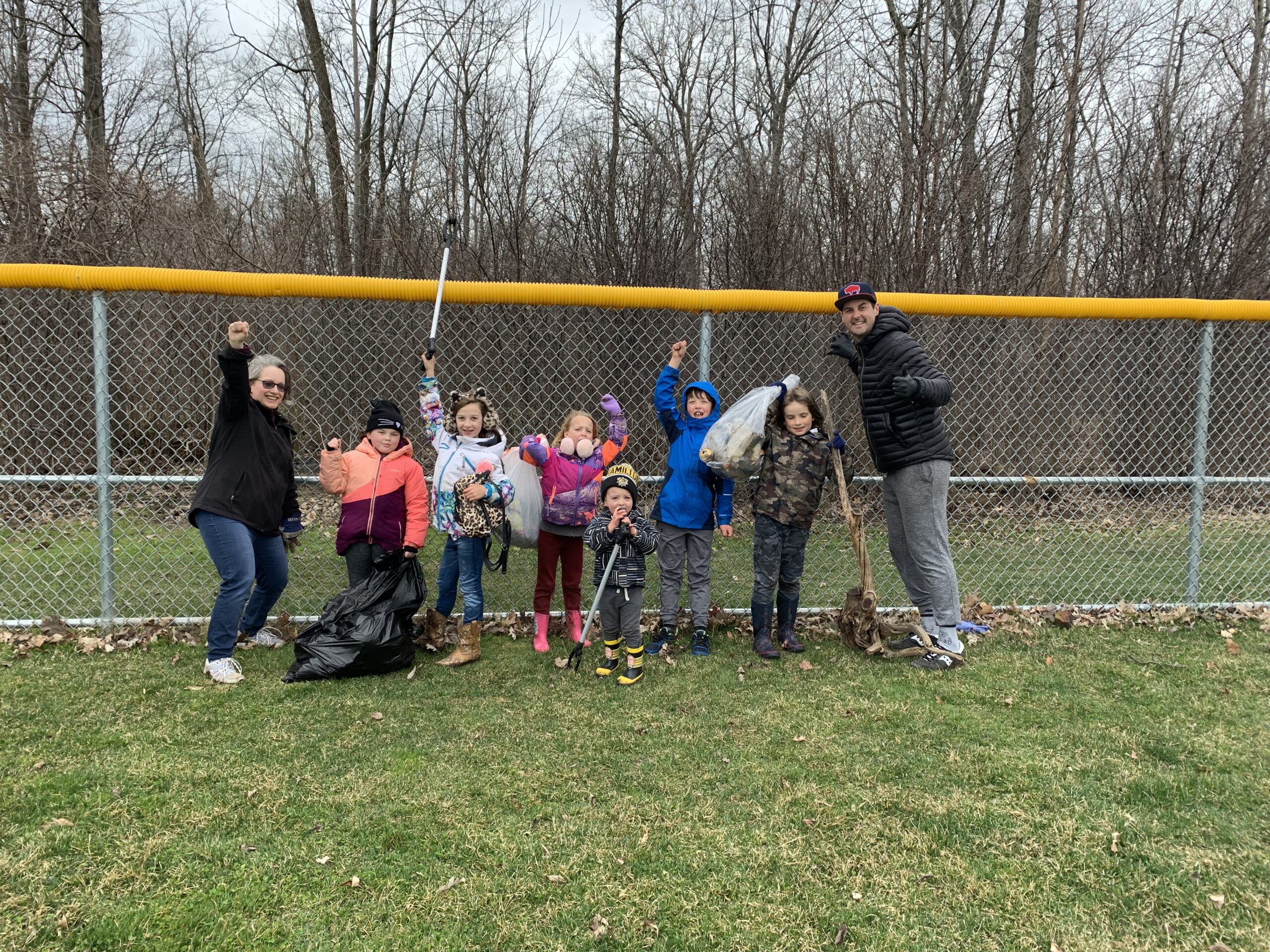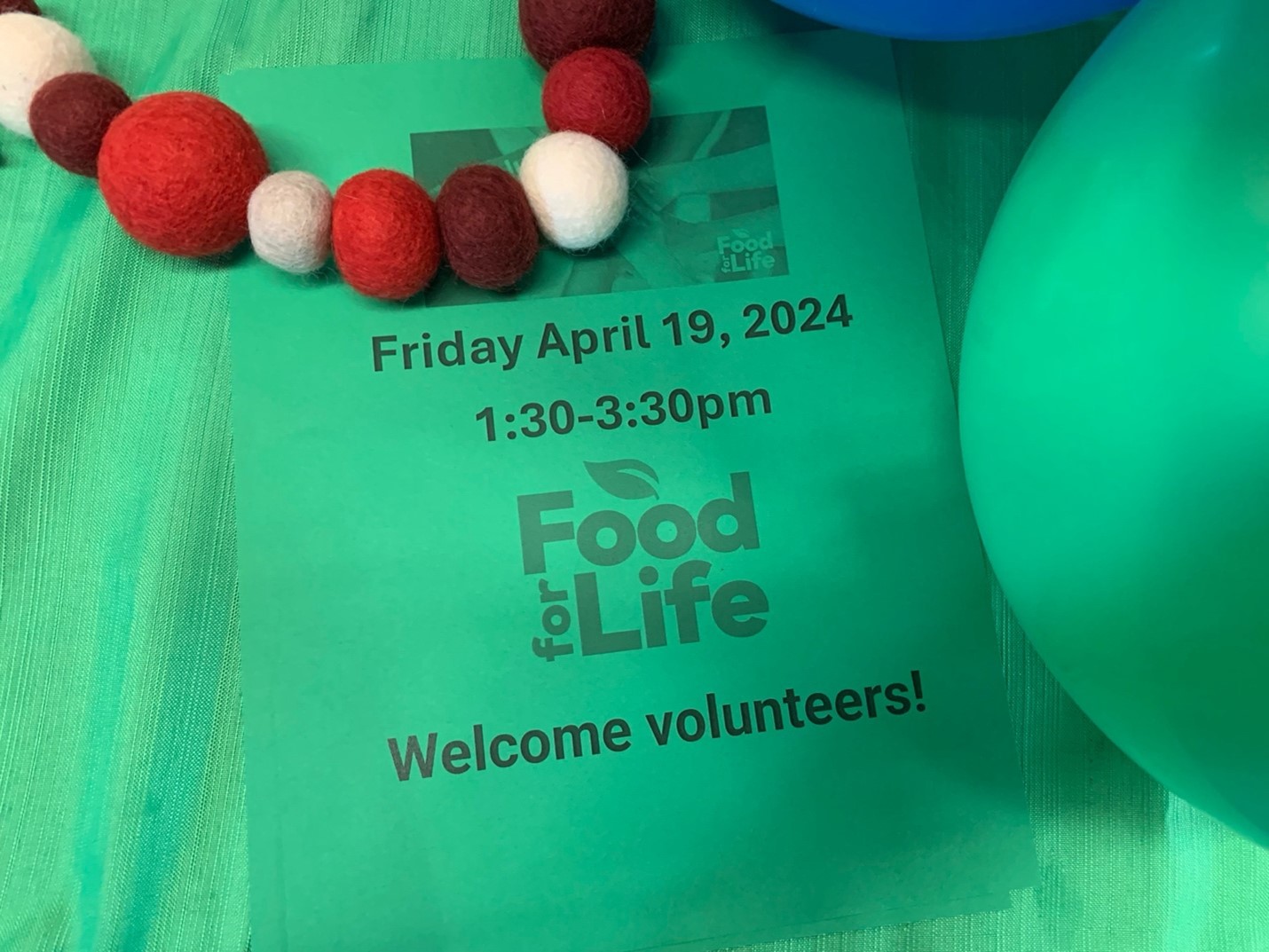By Kyle Marshall, Local Journalism Initiative Reporter
The next full solar eclipse is taking place on April 8 of this year, and a group of high school girls from Oakville have discovered that the path of the eclipse mirrors that of an endangered species, and they are selling solar eclipse glasses to mitigate the species’ plight.
Emilie Leclercq, Taylor and Paige Denton, and Ellen and Maggie Lentine discovered that the path of the eclipse is the same as the migration path of the endangered monarch butterfly.
Every fall, the North American monarch butterflies east of the Rocky Mountains travel almost 5,000 km from their summer breeding grounds to their overwintering locations in central Mexico. Butterflies west of the Rockies take a much shorter migration path to California.
And every spring, the butterflies migrate back from Mexico, through the U.S., and into Canada.
Taylor Denton has always known that this was the migration path and noticed that it was the same as the eclipse, but had the other girls compare and confirm.
According to the NASA website, the eclipse path starts over the South Pacific Ocean, into Mexico and the U.S. through Texas, Oklahoma, Arkansas, Missouri, Illinois, Kentucky, Indiana, Ohio, Pennsylvania, New York, Vermont, New Hampshire, and Maine. Parts of Tennessee and Michigan will also experience the eclipse.
“The eclipse will enter Canada in Southern Ontario, and continue through Quebec, New Brunswick, Prince Edward Island, and Cape Breton. The eclipse will exit continental North America on the Atlantic coast of Newfoundland, Canada, at 5:16 p.m. NDT,” according to NASA.
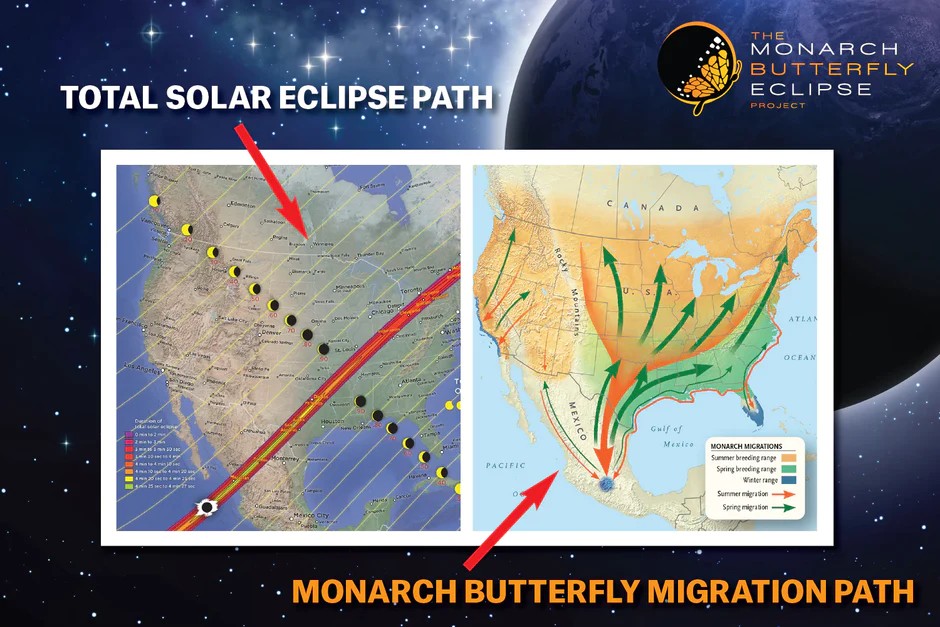
The idea to sell glasses for the eclipse came during the last full eclipse when the Denton family found that UV glasses were in short supply. This time the girls wanted to make them easier to get and to tie it into the monarch butterfly, thus beginning the Monarch Eclipse Project.
“It’s an idea that’s been around for a while. Like, around 2017 was the last solar eclipse and my family couldn’t find solar eclipse glasses because they were all sold out,” said Taylor.
“We wanted to make it more accessible, so then we came up with the idea of putting our proceeds to the monarch butterfly.”
The girls have been working with organizations such as BurlingtonGreen, Monarch Joint Venture in the U.S., Oakvillegreen, and the Halton Environmental Network; they are also meeting with Milton Public Library next week to discuss being a part of their Pollinator Week.
BurlingtonGreen is an environmental charity that started 16 years ago as a voice for the environment in Burlington. They have a three-pillar approach of awareness, advocacy, and action towards environmental issues.
They run kids’ workshops, a youth network, have meetings with guest speakers, and host youth summits, and promote things that other groups are doing, such as the Monarch Eclipse Project.
“So over the 16 years, we’ve just tried to collect as many people who live, work, and play in Burlington, who care about what’s going on in the environment, and just sort of add them to our community,” said Kale Black, Senior Program Coordinator for BurlingtonGreen. “And it’s really, really great to be able to promote and support student-led initiatives.”
BurlingtonGreen connected with the Monarch Eclipse Project through the City of Burlington environmental staff, who told the girls to contact the charity.
There have also been discussions of helping to enhance the project.
“That’s a lot of what we do with youth groups, is hear what their ideas are, and their plans and strategies,” Black continued. “And if we can offer any tips, suggestions, connect them with anyone that might be helpful, and at the very least, promote it on our platforms to people that we know will be interested.”
BurlingtonGreen will also likely be featuring the girls as guest speakers at the charity’s youth network meeting next month.
This is not a school project though; the girls are doing all of this in their free time. Even if they don’t want to get into the sciences as a career, they believe that starting this project will still help them later in life.
The most difficult aspect though is highlighting the eclipse for others.
“I think it’d be raising awareness, because not many people are aware about the total solar eclipse until like the last two weeks or so,” explains Leclercq.
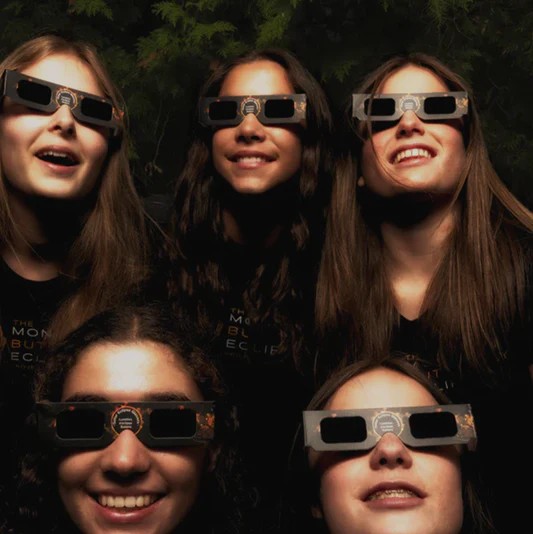
According to their website, 20% of the gross eclipse glasses sales will be donated back to any organization that partners with them for sales, and 100% of net profits will go to The Monarch Butterfly Eclipse Foundation.
They have already sold 500 glasses to a Newfoundland town of just 700 residents. They have also sold glasses to people from Texas and to companies like Canadian Tire and Amazon.
The Halton Catholic District School Board has also declared April 8 as a PA Day, as it will be pitch black during the eclipse.
The girls’ favourite part of this whole venture has been learning how to reach out to people, advertise on social media, and just make people aware of this unique event.
“I think the most important thing is just the awareness that needs to be spread and how it’s such a big deal and…it needs to be acted upon,” Taylor concluded.
For more information and to buy a pair of solar eclipse glasses, visit www.monarchbutterflyeclipse.com/.

